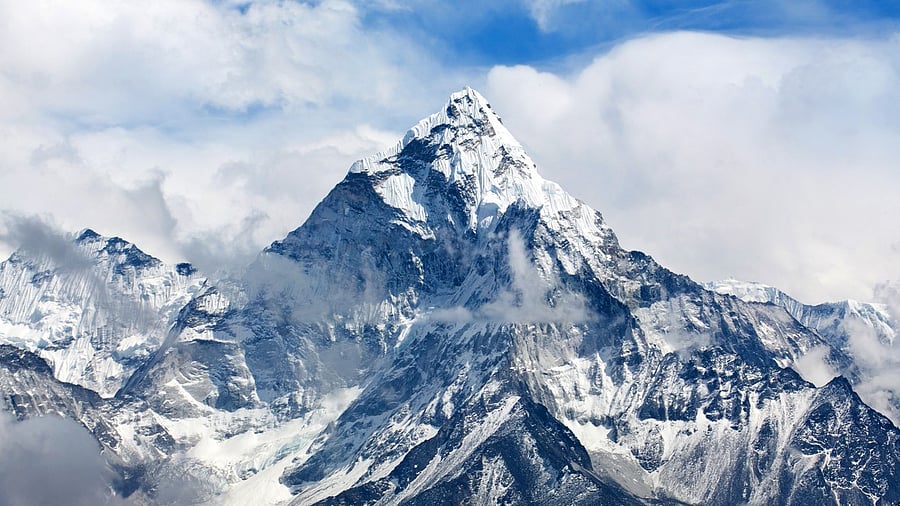
Image for representation showing snow cap mountains.
Credit: iStock Photo
According to a recent report by the International Centre for Integrated Mountain Development (ICIMOD), rivers in the Hindu Kush Himalayan region are witnessing a significant decline in the flow because of climate change. The region is known as the Third Pole because it has the biggest accumulation of snow after the north and south poles – the snow cap here also influences life and ecology in the surrounding regions in multiple ways.
Twelve major rivers, including the Ganga, Indus, Brahmaputra, Mekong, and Amu Darya, are the lifelines of the region and support the lives of about two billion people, a quarter of the world’s population. The emaciation of the snow cap which feeds all these rivers – because of global warming – has been known for a long time but the new report which was compiled after a years-long study has highlighted the gravity of the situation.
According to the report, snow persistence, which is the duration of the snow on the ground during the winter months, has drastically declined in recent years. Four of the five winters between 2020-21 and 2024-25 saw below-normal snow persistence. It has dropped to a record 23.6 per cent below normal in the winter of 2024-2025.
The decline is more in the Mekong basin than in the Ganga and Indus basins – this decline poses a threat to early summer flows of water which are important for agriculture, hydro-power generation, and preservation of the ecosystem. It will increase the chances of drought and dependence on groundwater which is otherwise depleting. Reduced water flows will also affect the region’s biodiversity hotspots. The depletion of snow leaves an adverse impact also because the exposed land surfaces lead to more solar absorption and further warming.
The global fight against climate change is still stuttering and all countries need to put more effort, money, and heart into the mitigation efforts. The Hindu Kush region calls for special attention because it is ecologically sensitive and is among the first to be seriously impacted by climate change. The report suggests that apart from emissions mitigation for long-term food, water, and energy security, countries of the region should adopt science-based, forward-looking policies for basin management and go in for transboundary water governance and regional cooperation. It also suggests building micro-irrigation systems and promotion of climate-resilient crops. The ICIMOD report is another reminder of the need to take climate change more seriously than we have done till now.
